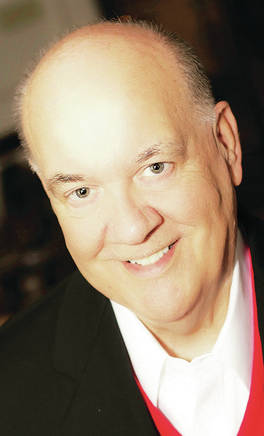
The last time they visited him, the whispers of staff and the beeping of the heart monitor were the only sounds in the intensive care unit as the loving family gathered around their husband, father and grandfather to say goodbye.
His wife patted his hand, his eldest son softly stroked his cheek, and his young granddaughter gently pulled the hair on his forearm as the patient tried to smile through the tubes that covered his face. As best he could, the patient was at peace and accepted his fate, a fate we all must face at some point in time.
As the end came, the gentleman closed his eyes and quietly fell asleep. Later, in his obituary, the words told how the man’s loving family surrounded him at the time of death.
In normal times, this is often how the end comes. Unfortunately, we are not living in normal times.
It is vastly different now. Hospitals across the nation must follow rules that limit family member’s access to their loved ones who are patients, due to the precautions taken against the spread of the new coronavirus.
The doctors and nurses caring for these patients not only wash their hands as they enter the room, they wring them as they wrestle with having to tell family members they cannot be with a loved one during this unimaginable time of crisis.
In a recent case, a man’s wife took her husband, who was in prime physical condition, to a hospital. The family was extremely worried. Earlier in the day, their daughter had called him and he didn’t know who she was. His temperature was 101.6 and rising, and his belabored breathing unceasing. The doctors diagnosed the man with the COVID-19 virus.
His blood pressure began to drop, his oxygen level had lowered, and a full, oxygen replenishing breath was now sporadic. The doctors decided to place him on a ventilator.
Sitting outside in the hospital parking lot, the wife imagined her husband in the ICU room, sick and scared, with a host of monitors, flashing lights, cardiac and oxygen equipment and more. Although the medical staff paved their plans with good intentions, they were all strangers. There were no family members present to talk to him, to hold his hand, or give him encouragement.
The patient’s condition faltered and became increasingly dire as the hours passed. The doctors were extremely concerned.
As his wife sat in her car, she thought about anesthesia and sedated patients who somehow remain aware of what is going on around them. The wife’s stress was working overtime, causing her mind to race.
“I wonder if my husband was searching for me and our daughter, thinking surely we would come at a critical time like this to be at his bedside,” she ruminated.
A brief time later, her cellphone rang. “I regret to tell you, your husband’s condition is worsening,” the nurse said as kindly as possible.
“I need to be with my husband,” the wife told the head nurse, panic creeping into her voice. “We will be glad to stand behind a thick glass barrier, if necessary, just so he knows we are here with him.”
“I’m sorry,” the charge nurse replied. “Hospital policy will not allow me to let you come in.”
There was zero tolerance. No exceptions. The wife appealed to the highest levels to no avail. The hospital would not take a chance of spreading the virus.
Although his mind was foggy, the patient was aware of his surroundings. He was able to hear his heart beating rapidly. And he had no strength.
His wife and daughter stayed up all night praying and crying, imagining how their husband and father must feel.
The people in their hometown heard about the hospital’s policy. They knew no one could be with him at the hospital, so they scheduled a communitywide in-car prayer vigil at the man’s office. The prayers from 300 people were in the air. They all prayed for a miracle.
The next day, the man’s wife received another call from the head nurse. “His signs are better, and they upgraded him from critical to stable,” she said. “His fever is gone, and his oxygen level is slowly returning to normal.”
Later that same morning, the phone rang. It was the patient. He spoke to his wife and daughter in a voice just above a whisper, for only a couple of minutes, but it was enough. They told him how much they loved him.
Then, he said something else, and his wife could picture his half-smile through the phone.
“I still can’t bear to think how he must have felt laying in that bed all alone,” their daughter said.
“Maybe he wasn’t alone after all,” her mother sighed, as a tear rolled down her cheek. “Perhaps he wasn’t alone after all.”
Pat Haley is a Clinton County native and former county sheriff and commissioner.


